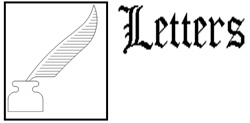 I'm surprised no one added any additional methods of mastering after Craig Rogers' cover article from September.
I'm surprised no one added any additional methods of mastering after Craig Rogers' cover article from September.
When I became Production Director for WAFX-The Fox, I found the most compact means of mastering already in use at the station. Video tape. Mark Mitchell, resident promo god, installed a Toshiba VCR with index search, but I'm sure any deck with index will work.
Simply put, we dub produced spots and promos onto a 120 minute video cassette at EP (Extended Play) speed, which translates into eight hours of mastering onto one-inch tape. The sound quality is amazing, the indexing feature is most convenient, and, even with a heavy load of in-house production to do, we'll fill a cassette once every 8 MONTHS! Sometimes even longer!
The only drawback to this is accidentally erasing the last piece of work mastered, but, if the producer will look at the master log book and listen to the last spot mastered, that goof-up can be avoided.
Asking the RADIO budget director for a VIDEO recorder may sound bas-ackwards, but as far as reproduction quality and time/space conservation (no more spinning reels looking for a spot; no more stacks of reels piling up), I've found VCR mastering the non-digital wave of the future.
Greg Williams, Production Director
WAFX-FM, Norfolk, VA
After a rather hectic week off trying to paint my house, it was great to get back in the studio to find the new issue of RAP waiting on my desk! I thought the "A" side of this month's Cassette [October '91 RAP] was exceptional -- loaded with lots of ear-catching promos.
Great interview with Bill Young. I've been carting stuff from him for as long as I've been in the business and always referred to him as "the guy in Houston." I didn't realize the extent of his operation. It sounds like it's quite the challenge to keep this running and shipping out fifty-thousand spots a year. (...and I thought twenty-five a day was a lot!)
Flip Michaels raises an important point [The Cheat Sheet], one that I thought you would have covered years ago. Tinnitus is a serious occupational hazard, just ask Pete Townsend, if he can hear you! A producer with a hearing problem is like a painter who is going blind. I've noticed a change in my hearing (my wife thinks I'm going deaf), and constantly have to remind myself to turn down the volume in the studio. Maybe ear plugs would help. Certainly this subject deserves more than half of one page.
As for the Equipment Test Drive [AKAI DD-1000 Digital Recorder], all I can say is that I gotta go digital, somehow.
Craig Jackman, Production Director
CHEZ 106FM, Ottawa, Ontario, Canada
Several things caught my eyes and ears on this month's issue and Cassette [October '91].
The article on creativity sparked some interest and evaluation of exactly how our promos sound here at WITZ.
As everyone in radio knows, all announcers have the studio monitors too loud. Hearing loss is an occupational hazard, but there's less risk if you learn to turn the monitors down.
Especially appealing to me this month was the detailed settings on the SPX-1000 "Shortwave" effect. I think you should make this a regular feature. Have contributors give us their favorite effects along with the settings so those of us with less experience can learn from those with more!
My final point comes from the creative ideas used on The Cassettes. Why not also list some short basic details about promotions that have worked great at your station. They could be adapted to various markets and no "trade secrets" would be given to the competitor. Let's face it, we all come up a little short in the creative promotional department every once in a while.
Gene Kuntz, Program Director
WITZ AM/FM, Jasper, Indiana
Dear Gene,
Thanks for your input. It's good to know we're still publishing things that interest our readers.
Regarding the SPX-1000 patch and making such articles a regular feature of RAP, I'm all for it. The only problem is getting those "contributors" to contribute. I think the problem lies in the fact that many readers, probably most readers, use the information contained in the pages of RAP without realizing that these tips come from people just like themselves. The difference is, those who contribute articles understand that RAP is a two-way street -- they take from RAP, and then they give back. All we can do is just encourage everyone to share their tricks and tips with the rest of us. If we begin receiving enough "SPX" patches or "H3000" patches, we'll make that a regular column.
As for "details about promotions," this is something we kicked off a couple of months ago with The Promo Page. As you might have noticed by now, there isn't a Promo Page in this issue. Again, the Promo Page is a two-way street. So, we'll use this space to encourage anyone with a hot promotion, some great promos for The Cassette, and a short article about the promotion to put the package together and send it in. Hopefully, we'll have something for the December issue.
Thanks again for your input and continued support.
♦
